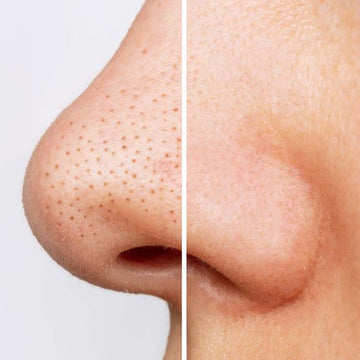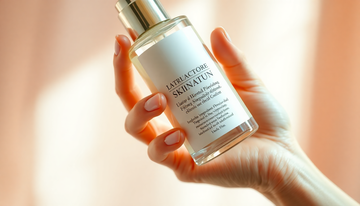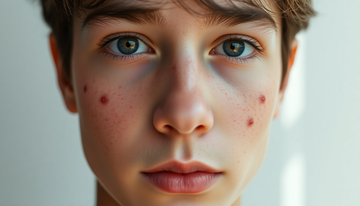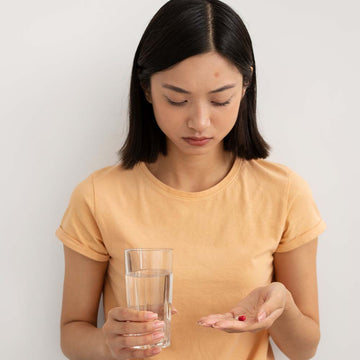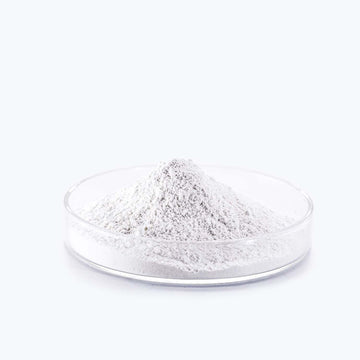Imagine getting ready for an important event, only to spot those unwelcome black dots on your face. Yes, we're talking about blackheads – those pesky little blemishes that seem to appear out of nowhere and spoil your flawless complexion. But fear not! In this article, we'll delve into the world of blackheads, understanding what causes them and exploring effective ways to treat and prevent them.
1.Understanding Blackheads
Blackheads, scientifically known as open comedones, are a common type of acne characterized by small, dark spots on the skin's surface. They usually occur on areas with a high concentration of oil glands, such as the face, neck, chest, back, and shoulders. Blackheads develop when pores become clogged with oil, dead skin cells, and bacteria, leading to their distinctive appearance.
2.Definition of Blackheads
Unlike whiteheads, which are closed comedones, blackheads remain open to the skin's surface. When exposed to air, the trapped oil oxidizes, resulting in the dark or black color that gives blackheads their name. This oxidation process distinguishes blackheads from other types of acne lesions.
3.Causes of Blackheads
Several factors contribute to the formation of blackheads, including:
a.Excessive Oil Production: Overproduction of sebum by the skin's oil glands can lead to pore blockage and blackhead formation.b.Dead Skin Cells: Accumulation of dead skin cells on the skin's surface can mix with oil and clog pores, resulting in blackheads.
c.Hormonal Changes: Fluctuations in hormone levels, such as those during puberty or menstruation, can increase sebum production and contribute to blackhead formation.
d.Use of Comedogenic Products: Certain skincare and cosmetic products containing comedogenic ingredients may exacerbate blackheads by clogging pores.
4.How to Treat Blackheads
a.Gentle Cleansing: Regularly cleansing the skin with a mild, non-comedogenic cleanser helps remove excess oil, dirt, and dead skin cells, preventing pore blockages and reducing blackhead formation.
b.Exfoliation: Incorporating regular exfoliation into your skincare routine using a gentle exfoliating scrub or chemical exfoliant containing ingredients like salicylic acid or glycolic acid helps unclog pores, remove dead skin cells, and reduce blackhead formation.
c.Topical Treatments: Applying topical treatments containing ingredients such as benzoyl peroxide, retinoids, or salicylic acid directly to blackheads can dissolve oil, exfoliate the skin, and prevent future breakouts.
d.Professional Treatments: For stubborn blackheads that do not respond to over-the-counter treatments, dermatologists may recommend professional treatments like microdermabrasion, chemical peels, or extractions to remove blackheads and improve skin texture.
5.Prevention Tips for Blackheads
a.Proper Skincare Routine: Maintain a consistent skincare routine that includes cleansing, exfoliation, and moisturization to keep pores clear and minimize blackhead formation.
b.Avoiding Comedogenic Products: Steer clear of skincare and cosmetic products containing comedogenic ingredients that can clog pores and exacerbate blackheads.
c.Regular Exfoliation: Incorporate regular exfoliation into your skincare routine to remove dead skin cells and prevent pore blockages.
d.Lifestyle Changes: Implement lifestyle changes such as stress management, balanced diet, hydration, and adequate sleep to improve overall skin health and reduce blackhead formation.
FAQs Frequently Asked Questions
1.Are blackheads harmful?
Blackheads are generally harmless but can be cosmetically bothersome. However, if left untreated, they may progress to more severe forms of acne.
2.Can squeezing blackheads make them worse?
Squeezing or picking at blackheads can worsen inflammation, cause infection, and lead to scarring. It's best to avoid squeezing or picking at blackheads and opt for gentle cleansing and exfoliation.
3.Can diet affect blackheads?
While diet alone is not a direct cause of blackheads, certain foods high in sugar, dairy, and processed ingredients may contribute to acne development in some individuals.
4.Can blackheads go away on their own?
In some cases, blackheads may resolve on their own over time. However, without proper skincare and treatment, they are likely to persist and may even worsen.
5.Are there any home remedies for blackheads?
Some home remedies for blackheads include using pore strips, clay masks, or natural ingredients like tea tree oil or apple cider vinegar. However, it's essential to use caution with home remedies and consult with a dermatologist before trying them, as they may not be suitable for all skin types.
